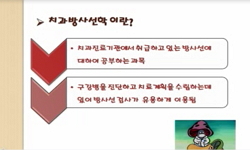Objective To determine the diagnostic accuracy and reliability of the Harris imprint index (HII), Chippaux-Smirak index (CSI), and Staheli index (SI) compared with the talar-first metatarsal angle.Methods Data was collected at the orthotic and prosthe...
http://chineseinput.net/에서 pinyin(병음)방식으로 중국어를 변환할 수 있습니다.
변환된 중국어를 복사하여 사용하시면 됩니다.
- 中文 을 입력하시려면 zhongwen을 입력하시고 space를누르시면됩니다.
- 北京 을 입력하시려면 beijing을 입력하시고 space를 누르시면 됩니다.


Diagnostic Accuracy of Harris Imprint Index, Chippaux-Smirak Index, Staheli Index Compared With Talar-First Metatarsal Angle for Screening Arch of Foot
한글로보기https://www.riss.kr/link?id=A108634062
-
저자
Paecharoen Siranya (Department of Physical Medicine and Rehabilitation, Faculty of Medicine, Thammasat University, Pathum Thani, Thailand) ; Arunakul Marut (Department of Orthopaedics, Faculty of Medicine, Thammasat University, Pathum Thani, Thailand) ; Tantivangphaisal Nuttharat (Department of Physical Medicine and Rehabilitation, Thammasat University Hospital, Pathum Thani, Thailand)

- 발행기관
- 학술지명
- 권호사항
-
발행연도
2023
-
작성언어
English
- 주제어
-
등재정보
KCI등재,SCOPUS
-
자료형태
학술저널
- 발행기관 URL
-
수록면
222-227(6쪽)
- DOI식별코드
- 제공처
-
0
상세조회 -
0
다운로드
부가정보
다국어 초록 (Multilingual Abstract)
Objective To determine the diagnostic accuracy and reliability of the Harris imprint index (HII), Chippaux-Smirak index (CSI), and Staheli index (SI) compared with the talar-first metatarsal angle.Methods Data was collected at the orthotic and prosthetic clinic, Thammasat University Hospital from January 1, 2016 to August 31, 2020. The three footprints were measured by the rehabilitation physician and the orthotist. The talar-first metatarsal angle was measured by the foot and ankle orthopaedist.Results The data from 198 patients with 274 feet was analyzed. The diagnostic accuracy of the footprint triad showed that CSI was the most accurate in pes planus prediction, followed by HII and SI (area under the receiver operating characteristic curve [AUROC]=0.73, 0.68, 0.68, respectively). In pes cavus, HII was the most accurate, followed by SI and CSI (AUROC=0.71, 0.61, 0.60, respectively). For pes planus, the intra-observer reliability by Cohen’s Kappa was 0.92 for HII, 0.97 for CSI, and 0.93 for SI, the inter-observer reliability 0.82, 0.85, and 0.70, respectively. For pes cavus, the intra-observer reliability was 0.89 for HII, 0.95 for CSI, and 0.79 for SI, inter-observer reliability of 0.76, 0.77, and 0.66, respectively.Conclusion The accuracy of HII, CSI, and SI was fair in screening of pes planus and pes cavus. The intra- and inter-observer reliability were in the moderate to almost perfect range by Cohen’s Kappa.
동일학술지(권/호) 다른 논문
-
- 대한재활의학회
- 오백민
- 2023
- KCI등재,SCOPUS
-
- 대한재활의학회
- Cordeiro André Luiz Lisboa
- 2023
- KCI등재,SCOPUS
-
- 대한재활의학회
- Park Yeongchae
- 2023
- KCI등재,SCOPUS
-
- 대한재활의학회
- Tanaka Naoki
- 2023
- KCI등재,SCOPUS




 KCI
KCI



